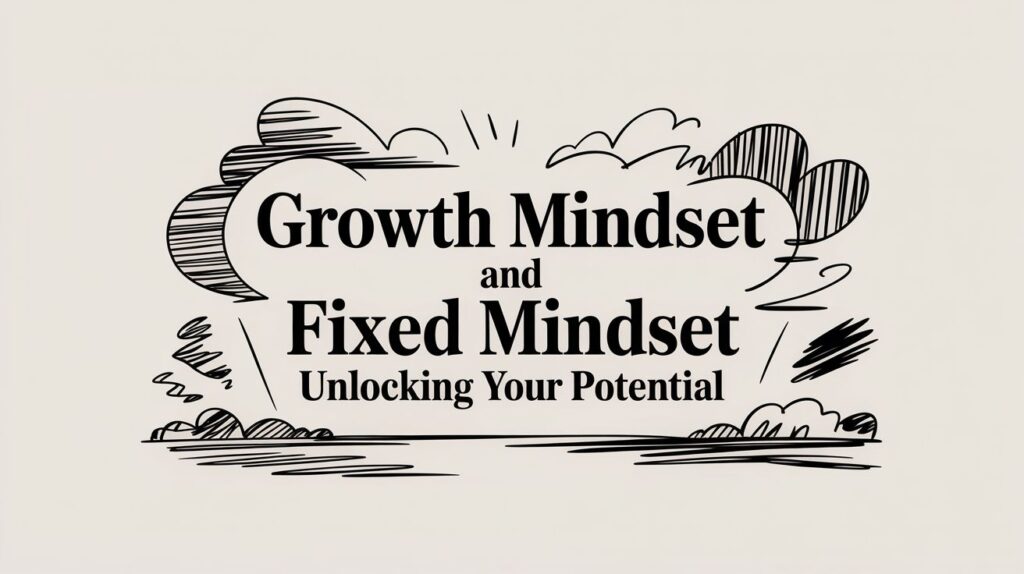Unlocking Wealth: A Comprehensive Summary of The Richest Man in Babylon

Ever wondered how some folks just seem to have a knack for money? “The Richest Man in Babylon” might just have the answers you’re looking for. This book, packed with stories from ancient Babylon, dishes out money advice that’s still spot-on today. It’s all about making smart choices, saving up, and knowing when to spend. Let’s dive into the key lessons that can help you grow your wealth, just like the Babylonians did.
Key Takeaways
- Saving a portion of your income is crucial for financial growth.
- Budgeting helps in managing expenses and avoiding unnecessary spending.
- Investing wisely can lead to long-term wealth accumulation.
- Creating multiple income streams enhances financial security.
- Seeking financial advice can help in making informed decisions.
The Timeless Lessons of Babylonian Wealth
Understanding Babylon’s Financial Wisdom
Babylon wasn’t just a city of grand architecture and bustling markets; it was a hub of financial ingenuity. The wealth of Babylon was not a stroke of luck or mere inheritance. Instead, it was the result of diligent planning and disciplined financial practices. People in Babylon understood the value of saving and investing wisely, which laid the foundation for their prosperity. They believed in the power of consistent effort and careful management of resources to build wealth over time.
The Role of Parables in Teaching Wealth
The stories from Babylon, especially those found in "The Richest Man in Babylon," use parables to teach financial wisdom. These tales are more than just stories; they are practical lessons wrapped in engaging narratives. Parables like those of Arkad, the richest man in Babylon, simplify complex financial concepts, making them accessible and relatable. They highlight the importance of habits like saving a portion of your income and living within your means.
How Babylon Became a Symbol of Prosperity
Babylon’s rise as a symbol of prosperity is a testament to its people’s financial acumen. The city was renowned for its impressive structures, like its towering walls and intricate irrigation systems, which were possible because of its strong economic foundation. This prosperity wasn’t just about wealth accumulation; it was about creating a thriving society where everyone had the opportunity to succeed. The principles that guided Babylon’s economic strategies continue to resonate today, reminding us that the path to wealth is paved with thoughtful planning and steadfast discipline.
The Core Principles of Financial Success

Saving as a Foundation for Wealth
Saving is the bedrock of financial prosperity. It’s like planting seeds for future growth. By consistently setting aside a portion of your income, you create a financial cushion that can support you in times of need and provide opportunities for investment. Start small if you must, but make it a habit. Saving isn’t just about stashing money away; it’s about prioritizing your future over immediate gratification.
The Importance of Budgeting and Expense Management
Budgeting is your roadmap to financial success. It helps you track where your money goes and ensures you live within your means. By distinguishing between needs and wants, you can make informed decisions about your spending. This practice not only prevents overspending but also allows you to allocate funds to areas that truly matter. Reflecting on your current money habits can provide insights into whether they are beneficial or need adjustments.
Investing Wisely for Future Growth
Investing is about making your money work for you. Instead of letting your savings sit idle, put them to work through stocks, bonds, or real estate. The key is to make informed decisions and avoid high-risk ventures. Diversification is crucial; it spreads risk and increases the potential for returns. Seek advice from knowledgeable individuals to navigate the complexities of investing. Remember, the goal is to build wealth steadily, not chase quick riches.
Building wealth is a journey, not a sprint. It requires patience, discipline, and a willingness to learn from both successes and failures. By embracing these core principles, you lay a solid foundation for a prosperous financial future.
Arkad’s Secrets to Building Wealth

The Power of Paying Yourself First
Arkad’s advice to "pay yourself first" is a game-changer for anyone serious about financial freedom. This principle is about setting aside at least 10% of your income before you even think about paying bills or buying groceries. It’s not just about saving money; it’s about prioritizing your financial future. This approach builds a financial buffer and instills a habit of saving, which is crucial for long-term wealth accumulation.
Creating Multiple Streams of Income
Relying on a single source of income is risky. Arkad emphasizes the importance of creating multiple streams of income to secure financial stability. This could mean investing in real estate, starting a side business, or diversifying your investments. By having various income sources, you not only increase your earning potential but also safeguard against economic downturns.
The Value of Seeking Financial Advice
Arkad learned the hard way that not all advice is good advice. He initially lost money by following the wrong counsel. The lesson here is to seek advice from those who are knowledgeable about finance. Consulting with financial experts can provide valuable insights and help you make informed decisions. It’s about learning from others’ experiences to avoid costly mistakes.
Consistent effort and wise decision-making are key to building a solid financial foundation. By adopting Arkad’s strategies, you can pave the way to a prosperous future.
The Role of Discipline and Diligence
Overcoming Procrastination in Financial Planning
Procrastination can be a major roadblock in achieving financial success. Often, people delay planning their finances, thinking they have plenty of time. But the truth is, the sooner you start, the better. Taking control of your financial future requires action today, not tomorrow. You need to set clear goals and break them down into manageable tasks. This approach keeps you focused and motivated, making it easier to tackle even the most daunting financial challenges.
The Impact of Consistent Effort on Wealth
Consistent effort is the backbone of building wealth. It’s not about making big leaps but about taking steady steps towards your goals. Whether it’s saving a small amount regularly or investing wisely, every effort counts. Over time, these small actions compound, leading to significant financial growth. Remember, wealth isn’t built overnight; it’s a result of persistent and diligent work.
Building a Financial Fortress for Security
Creating a secure financial foundation is crucial for long-term stability. This means having a solid plan to protect your assets and ensure your financial well-being. Consider having an emergency fund, investing in insurance, and diversifying your investments as a way to safeguard your wealth. By doing so, you build a financial fortress that can withstand life’s uncertainties, giving you peace of mind and security.
The Influence of Babylonian Practices Today
Modern Applications of Ancient Wisdom
Babylon, with its rich history, laid the groundwork for many of today’s economic practices. Their innovative use of currency and contracts has evolved into the financial systems we rely on now. The Babylonians were among the first to use money as a medium of exchange, simplifying trade and enabling more complex financial transactions. This shift from bartering to using currency paved the way for modern economies. Today, we see echoes of Babylonian wisdom in how we manage money, invest, and even in our legal systems that protect ownership and contracts.
The Legacy of Babylonian Economic Strategies
The economic strategies employed by Babylon continue to inspire modern financial thought. Their dedication to structured financial planning and management is mirrored in today’s budgeting and saving techniques. Babylonians were known for their disciplined approach to wealth, focusing on hard work, frugality, and wise investments. These principles are still relevant and form the backbone of financial literacy programs worldwide. By understanding and applying these strategies, we can see how ancient practices have shaped contemporary financial systems.
How Babylon’s Lessons Transcend Time
The lessons from Babylon are timeless, transcending eras and cultures. Their emphasis on saving, budgeting, and investing wisely resonates with financial teachings today. The concept of "paying yourself first," a core principle in Babylonian finance, is a strategy still recommended by financial advisors. This practice encourages individuals to prioritize savings and investments before other expenses, ensuring long-term financial security. Babylon’s enduring impact is a testament to the effectiveness of their economic principles, proving that good financial habits can withstand the test of time.
Babylon’s financial wisdom shows us that the key to prosperity isn’t just about wealth accumulation but also about maintaining and growing it through disciplined practices. Their legacy teaches us that with careful planning and sound financial management, wealth can be both created and preserved.
The Journey to Financial Independence
Steps to Achieve Economic Freedom
Achieving financial independence isn’t just about saving money—it’s a lifestyle choice. Here’s a roadmap to get started:
- Set Clear Goals: Define what financial independence means to you. Is it retiring early, like the FIRE movement suggests, or simply having enough to live comfortably without stress?
- Create a Budget: Track your income and expenses diligently. This helps identify where your money goes and where you can cut back.
- Eliminate Debt: Focus on paying off high-interest debts first. This not only saves money but also frees up cash for other investments.
- Build an Emergency Fund: Aim for at least three to six months’ worth of expenses. This fund acts as a safety net during unexpected events.
- Invest Wisely: Diversify your investments to include stocks, bonds, and real estate. The idea is to let your money work for you.
The Importance of Long-Term Planning
Financial independence requires a long-term perspective. It’s about making decisions today that will benefit you years down the line. Here’s how to keep the big picture in mind:
- Think Beyond Immediate Gains: Focus on strategies that provide sustainable growth rather than quick wins.
- Regularly Review Your Plan: Life changes, and so should your financial plan. Adjust your strategies to align with new goals or life circumstances.
- Stay Educated: Keep learning about financial trends and investment opportunities. This helps in making informed decisions.
Embracing a Proactive Financial Approach
Taking charge of your finances means being proactive rather than reactive. Here’s how you can embrace this mindset:
- Automate Savings: Set up automatic transfers to your savings or investment accounts. This ensures you’re consistently saving without having to think about it.
- Monitor Your Progress: Regularly check your financial health. Are you on track to meet your goals?
- Seek Professional Advice: Don’t hesitate to consult with financial advisors when needed. They can provide valuable insights and strategies.
"Financial independence is not a destination, but a journey. It requires patience, persistence, and a willingness to learn and adapt."
The Richest Man in Babylon’s Enduring Impact
Why Clason’s Work Remains Relevant
George S. Clason’s "The Richest Man in Babylon" has stood the test of time, continuing to be a beacon of financial wisdom. The book’s teachings are rooted in practical advice that transcends its ancient setting, offering lessons that are just as applicable today as they were in Babylon. Clason’s work emphasizes the power of saving, investing, and managing money wisely, principles that form the backbone of financial literacy today.
The Book’s Influence on Personal Finance Literature
This book has shaped the landscape of personal finance literature, becoming a foundational text for countless financial advisors and authors. Its parables, filled with timeless truths, have inspired a generation of readers to rethink their financial habits. Many modern financial strategies echo the core concepts found in Clason’s work, demonstrating its lasting influence.
Lessons That Continue to Inspire Generations
The lessons from "The Richest Man in Babylon" are simple yet profound, resonating with readers across generations. Key teachings, like paying yourself first and living below your means, are fundamental to achieving financial stability. These principles are not only timeless but have been adapted into various financial planning strategies worldwide.
The enduring impact of these lessons is evident in their ability to inspire individuals to take control of their financial destinies, proving that the wisdom of Babylon is truly timeless.
For those looking to build a solid financial foundation, the seven essential principles outlined in the book serve as a reliable guide. These "cures for a lean purse" are not just tips but a roadmap to financial success, ensuring that the legacy of Babylonian financial wisdom continues to thrive.
Conclusion
Wrapping up "The Richest Man in Babylon," it’s clear that the book’s lessons are as relevant today as they were in ancient times. The stories remind us that building wealth isn’t about luck or inheritance, but about making smart choices and sticking to them. Saving a bit from every paycheck, investing wisely, and living within our means are simple steps, yet they can lead to financial freedom. It’s not just about having money, but about having the peace of mind that comes with knowing you’re prepared for whatever life throws your way. So, whether you’re just starting out or looking to improve your financial habits, these age-old principles offer a solid foundation for anyone aiming to secure their financial future.
Frequently Asked Questions
What is “The Richest Man in Babylon” about?
“The Richest Man in Babylon” is a book by George S. Clason that uses parables set in ancient Babylon to teach timeless financial lessons about saving, investing, and managing money.
Who is the main character in the book?
The main character in the book is Arkad, who is known as the richest man in Babylon. He shares his wisdom on how to accumulate and manage wealth.
What is the first lesson taught in the book?
The first lesson in the book is to “start thy purse to fattening,” which means saving at least 10% of your income to build wealth over time.
Why is saving important according to the book?
Saving is important because it allows you to set aside money for future needs, ensuring you always have a financial cushion and can invest for growth.
How does the book suggest managing expenses?
The book suggests living below your means by controlling expenses and avoiding unnecessary luxuries, ensuring your income exceeds your spending.
What role do parables play in the book?
Parables in the book are used to convey financial wisdom in a simple and engaging way, making the lessons easy to understand and remember.







Responses